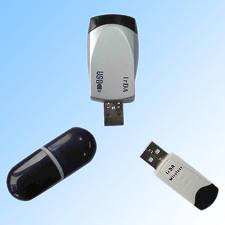
This black box you see pictured here is called a "UPS" which is an acronym for Uninterupted Power Source (or Supply). It can save your computers' butt (and probably yours too) one day.
I know it says "APC" on it but that is the company that makes many UPS's. What this mysterious looking box does is provide automatic battery backup power for your computer and monitor in the event of a blackout. This leaves you ample time to finish what you're working on, and turn off your machine until the power comes back.
What happens if there's a black out and you don't have a UPS? A few things. Firstly, your computer will power down instantly, and if you happened to be working on something at that moment, or in the middle of saving a file, you will find that the data you were working on will most likely be corrupt. Secondly, your power supply can possibly get "surged" when the power gets restored, and that's not good for you power supply. It's like a punch in the gut.
A UPS is not just a back up power supply, it also provides "clean" power to your computer. The power coming into your home is "dirty" because it is not a steady stream or flow of electricity; it actually contains numerous small spikes and lulls in power. A UPS cleans this up and provides you with a steady clean stream of power and that's good news for your power supply.
A cheap power supply will not handle spikes and lulls well and it's components will become weak over time. And that can have an adverse effect on your motherboard and other components. A good power supply can handle them better because they are built with better quality parts (a heavy power supply generally indicates a good power supply). A surge protector is a good thing, and can usually do what it claims it can do, but it cannot provide the same protection that a UPS can.
When you buy a UPS, there's one very important thing you need to keep in mind. The number on the front (you see the 1500 in the picture above?) indicates the maximum wattage that it can handle being plugged into it for a certain length of time. Consider the power supply in your computer. If it's a 500 watt, it would be a good idea to get a UPS that is numbered as 600 or better. Some UPS's will have a "VA" in front of the number. VA is short for volt-amps. If you have 1000 watt power supply, get an 1100 or higher numbered VA. This way, you should be able to plug in your monitor, modem and router to your UPS as well. Often when the power goes out, your phone and cable still work, but ordinarily you can't access them because you have no power. With a UPS, you will. The higher the VA number, the longer you can remain powered during a black out.
So while the neighbourhood is dark from a power outage during the next rain storm, you'll be snuggled up behind your computer still happily pecking away on your keyboard. I say that tongue-in-cheek, of course, because the purpose of a UPS is not so much to keep you working during a black out, but rather to give you time to shut down properly without losing whatever you were working on.







